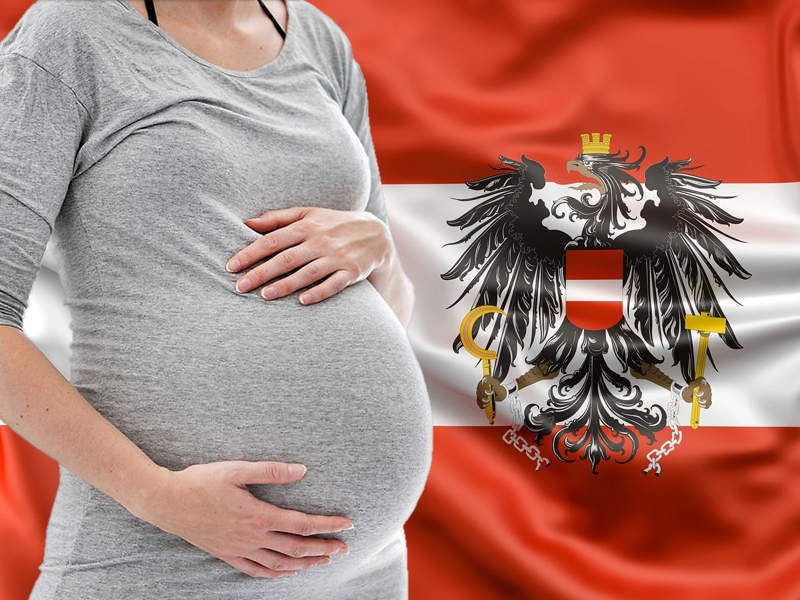Surrogacy in Europe

In most European countries, surrogacy is prohibited. In some countries, violation of the law in this area entails serious punishment (in Austria, Germany, France, Norway, Sweden, Estonia).
Non-commercial surrogacy is not prohibited in the UK, Netherlands, Denmark, Portugal, Czech Republic.
Surrogacy is legal in Ukraine, Russia, Belarus.
But in Greece, Belgium, Spain and Finland, this method of ART is not regulated by law, but it is not prohibited either.
Ukraine
All methods of assisted reproductive technologies are allowed in Ukraine, including surrogate motherhood, the use of which is regulated by a number of regulatory legal acts. Affordable cost of infertility treatment, high level of medicine, a wide range of surrogacy programs – an incomplete list of reasons why married couples from all over the world travel to Ukraine to become parents.
The field of reproductive medicine in Ukraine is rapidly developing, there are already more than 30 private ART clinics operating here, international congresses are held annually, attended by specialists from all over the world.
The law does not limit the amount of the fee that is paid to the surrogate mother. All parental rights to a child belong to a married couple, a surrogate mother does not claim a newborn and cannot dispute anything in court under the law.
The legislation strictly controls the quality of medical procedures that are carried out within the framework of the program, and clearly defines the rights and obligations of a married couple and a surrogate mother.
Czech Republic
In 2014, a section on surrogacy appeared in the “Czech Civil Code”. Both a married and an unmarried woman can become a surrogate mother. There is a gap in the country’s legislation: the surrogate mother may refuse to give the child to the parents. In this case, the law takes her side.
Italy
Surrogacy in Italy is prohibited by law in the same way as egg donation. The punishment for breaking the law is serious: imprisonment for up to 3 years + a fine of up to 1 million euros. IVF is allowed to be used only by married couples; this method of infertility treatment is not available for single people. It is also prohibited in the country to freeze embryos. Such severe restrictions are associated with the authority of the Roman Catholic Church, which significantly affects legislation and public opinion.
The Italian government does not prohibit its citizens from traveling to neighboring countries for infertility treatment, where surrogacy and other ART methods are legal.
Germany
Germany has adopted the “Embryo Protection Law”, which prohibits surrogacy and oocyte donation. On the territory of the country, any unlawful actions with an emerging human life are strictly prohibited.
The law is allowed to give birth to their own child. IVF is performed only with your own eggs. 30% of German women give birth as a result of IVF.
Poland
Surrogacy in Poland remains illegal, while other methods of assisted reproductive technologies are allowed in the country. The mother of a child is the woman who gave birth to him. The transfer of a newborn to other people is not possible within the framework of the law.
The legalization of the method of surrogacy in the country is hindered by the Catholic Church, which has a serious impact on legislation and public opinion.
Greece
Surrogacy is not prohibited in Greece, but the law prevents the use of its commercial form. This means that one can become a surrogate mother only for altruistic motives, the law prohibits paying a woman for such help.
The woman, however, is compensated for temporary disability after childbirth in the amount of 10,000 Euros (payment of remuneration for surrogacy is not considered).
Spain
In Spain, surrogacy is prohibited, but the law does not provide for any punishment for using this method of fertility treatment.The state does not prohibit married couples from using the services of surrogate mothers outside the country, but since 2014, the government has suspended the issuance of citizenship to children born as a result of surrogacy.
Belarus
In 2016, the surrogacy method became legal in Belarus thanks to a new section in the “Marriage and Family Code”. The services of surrogate mothers can be used only by those couples who, for health reasons, cannot become parents on their own without medical assistance. The legislation clearly defines that parental rights for a child belong to a married couple, the surrogate mother has no rights.
Requirements for surrogate mother in Belarus are strict:
- a woman must be married,
- to have a child,
- law abiding,
- spouse consent,
- is not registered with a psychiatrist, narcologist,
- age from 20 to 35 years.
A new amendment to the law allowed unmarried women who already have adult children to take part in the program.
Non-commercial surrogacy is allowed only if a relative is the surrogate mother. During pregnancy, a surrogate mother has no right to smoke or consume alcohol. For violation of the requirements, a woman pays a fine and may completely lose her fee.
Russia
Surrogacy in Russia is legal and regulated on the legislative level. There are a lot of flaws in Russian legislation in the field of reproductive technologies, the main of which is that a surrogate mother may change her mind and refuse to give the child to a married couple.
In Russia, the so-called presumption of motherhood works, according to which the mother is the one who gaves birth, and it does not matter that she has no genetic connection with the child.
Yes, the surrogate mother carries and gives birth to a child to a married couple, their relationship is regulated by an agreement, but spouses can become legal parents of a baby only with the consent of the woman. Such contradictions can create serious difficulties that will be difficult to resolve even in a legal manner. In addition, a surrogate mother may dispute the fact of parental rights to a child even after several years.
Biological parents have the right to abandon the child after his birth.
The services of a surrogate mother in Russia can be used by married couples, single women and even single men.
More information


